Sunday is Rare Disease Day – a time to honor the patients, families, caregivers, and healthcare professionals who are part of the rare disease community.
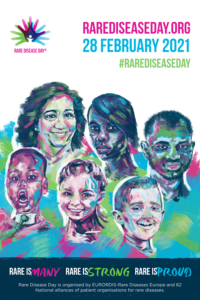
At PacBio, we are passionate about supporting this community and providing tools that help improve the ability of scientists and clinicians to deliver valuable answers to families and reduce what can be a years-long diagnostic odyssey. And while each ‘rare’ disease may affect a limited number of people, collectively these diseases affect hundreds of millions of people around the world.
Since we last celebrated this special day, we’ve been particularly excited by the progress made by cutting-edge scientists and clinicians who are applying new technologies to find the genetic root causes of these diseases. Leading into Rare Disease Day, we’d like to highlight and acknowledge the work of these scientists who are striving to improve the lives of those affected by rare diseases.
In Missouri, the team at Children’s Mercy Kansas City recently announced the opening of a massive new pediatric research facility housing the Children’s Mercy Research Institute (CMRI). The institute, established in 2015 to accelerate precise diagnoses and treatments for complex childhood diseases, is built on a translational approach that brings science and medicine together seamlessly.
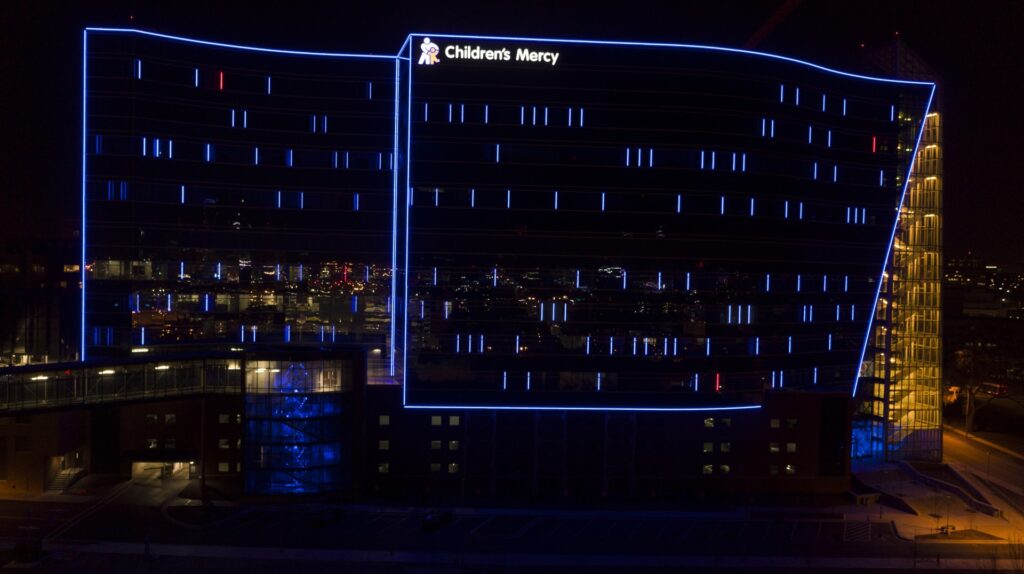
One of the institute’s most important research projects is Genomic Answers for Kids (GA4K), a first-of-its-kind pediatric data repository that is collecting genomic data and health information from 30,000 children and their families during the next seven years to create a database of 100,000 genomes. More than 2,230 families with rare disease have enrolled in the program to-date, which has resulted in more than 10,200 new genomic analyses, more than 250 genetic diagnoses and already contributed to the reporting of 10 new disease genes.
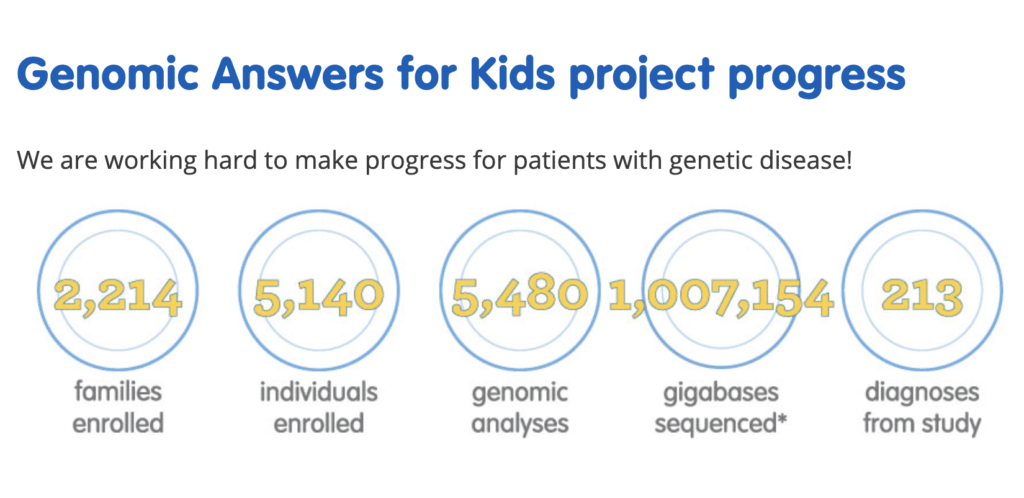
GA4K focuses on rare diseases and has been solving previously unsolvable cases by implementing highly accurate long-read sequencing, known as HiFi sequencing. Based on early successes, the team has scaled up its capacity with additional Sequel IIe Systems and aims to use HiFi whole genome sequencing for approximately 1,000 cases that went unsolved after the preliminary short-read exome analysis.
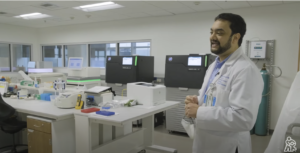
Meanwhile, in Alabama, scientists at the HudsonAlpha Institute for Biotechnology recently announced that they found likely pathogenic variants in two pediatric rare disease cases that had remained unsolved using short-read sequencing. In both cases, the patients suffered from neurodevelopmental disorders. The scientists were able to pinpoint the disease-causing genetic variants through whole genome sequencing of parent-proband trios. One of the pathogenic variants was a 7 kb insertion in the CDKL5 gene, while in the other instance an extensive structural variation was highlighted. Both variant types are known to be challenging for short-read sequencing technologies and were therefore not discovered in the preliminary analysis.
“The ability to find so many variants that were previously missed is exciting, and holds great promise for diagnostic testing in the future,” says HudsonAlpha Faculty Investigator Greg Cooper, PhD. “Long-read genome sequencing will become a powerful tool for research and clinical testing over the next few years.”
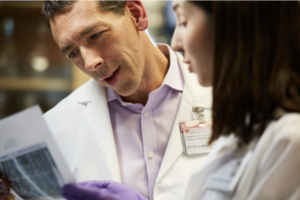
One of the earliest examples of how PacBio sequencing technology could make a difference for rare disease cases came from the Stanford lab of Euan Ashley, a noted cardiologist who just released a new book, The Genome Odyssey: Medical Mysteries and the Incredible Quest to Solve Them. The book includes, among many others, a fascinating case of Carney complex in an individual who had suffered a series of tumors in his heart and glands, for whom eight years of genetic analyses had produced no firm answers.
These are just a few of the many great advancements among rare disease experts that are making new inroads into tough cases with HiFi sequencing. It is critical to remember that each of these explained cases represents a family that is now closer to the end of their diagnostic odyssey, potential treatment options, and renewed hope for healthier futures. We send our sincere gratitude to them and everyone working hard to accelerate the development of medical advancements in rare disease research.
 If you’d like to participate in this wonderful community, take a look at these upcoming events in support of rare disease research awareness, funding and education:
If you’d like to participate in this wonderful community, take a look at these upcoming events in support of rare disease research awareness, funding and education:
- Rare Disease Day strives to raise awareness amongst the public and decision-makers about rare diseases and their impact on patients’ lives – to show your support, you can use your social channels to amplify and tag #RareDiseaseDay
- Collaborate with and support Children’s Mercy’s Genomics Answers for Kids program, by nominating a patient for participation and/or donating to support their vision
- The HudsonAlpha team is hosting the Double Helix Dash in April, a virtual 5K to support childhood genetic disorders research – anyone can participate!
- PacBio is hosting a 3-day virtual event in April focused on the genetics of rare disease – register to attend and hear firsthand from scientists and clinicians on their recent discoveries
To learn more about how PacBio HiFi sequencing is helping advance our understanding of rare disease, visit our rare disease resource page.